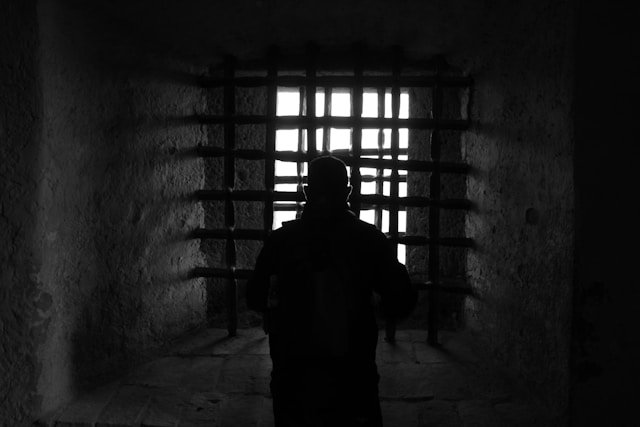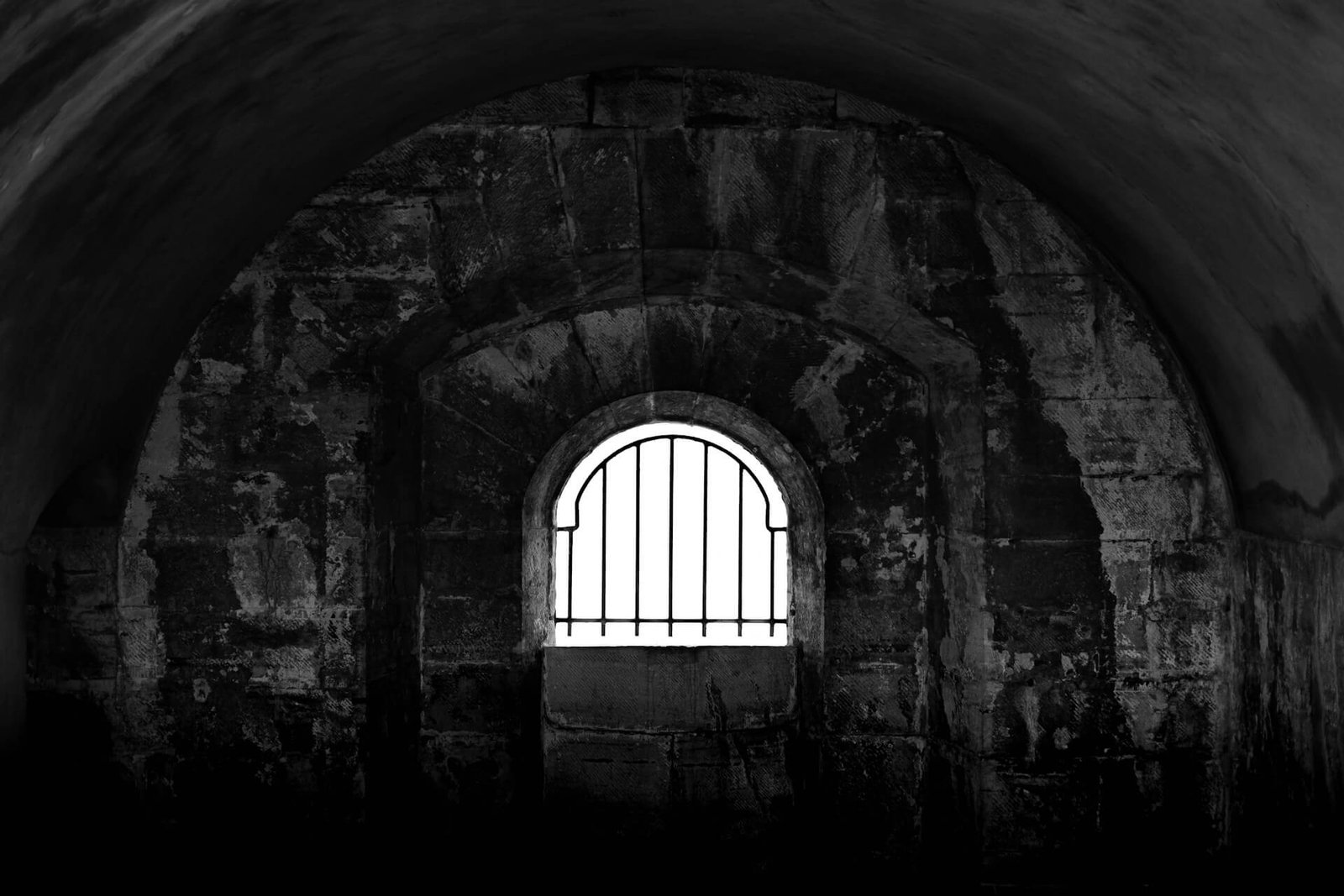The journey of waiting on God often feels like walking through a wilderness—dry, uncertain, and seemingly endless. We’re waiting for a promise, a breakthrough, healing, or clear direction, and the silence of heaven can be deafening. If you’ve ever found yourself asking, “How much longer, God?” know that you’re not alone. There is a long line of believers who have asked the same question.
We often focus on Joseph’s dramatic ending: the rags-to-royalty victory, the dazzling coat, and the power of the palace. But the true masterclass in his life isn’t the final promotion; it’s the twenty-plus agonizing years he spent between receiving a divine dream and seeing its fulfillment. His life was a brutal commute from a favored son to a pit, from a pit to a slave, and from a slave to a prisoner—all while holding onto a promise.
I’ve come to realize that the real power of Joseph’s story is found in the waiting. The delays were not detours; they were the very path God used to transform a boastful boy into the wise, humble, and compassionate leader who would save his family and a nation. Joseph’s life teaches us that our waiting on God is not wasted time. It is, in fact, the most crucial time of preparation.
As I’ve studied the book of Genesis, letting Joseph’s journey sink deep into my own heart, I’ve uncovered seven powerful, life-altering lessons that have completely reshaped how I approach my own seasons of delay. If you’re in your own “waiting room” right now, please know this post is for you. Hold on, don’t give up, because God is preparing you for what he has in store for you.
1. Your Dream Doesn’t Excuse You from the Process of Waiting on God
In the beginning, Joseph was a dreamer, an entitled dreamer actually. He received magnificent visions of his family bowing down to him, and in his youthful immaturity, he promptly ran to tell his brothers, essentially boasting about his future authority (Genesis 37:5-11). He had the promise of God firmly locked into his mind, but he had zero character, humility, or wisdom to handle the weight of that promise.
This is a lesson many of us have to learn the hard way. When God speaks a beautiful word over our lives, we often expect a swift, effortless ride to the top. We think the promise itself is a free pass that excuses us from the hard work of personal growth. But Joseph quickly discovered that a divine promise is the destination, not the transportation. The long, messy, and often painful period of waiting on God is the necessary journey designed to build the very character required to sustain God’s promise when it finally arrives.
If you are frustrated that your “dream” hasn’t happened yet, I gently encourage you to pause and ask God a vital question: “What are You teaching me in this delay?” The process is not a roadblock; it’s the preparation. God loves you too much to give you a public platform before He has developed your private character. He wants to give you a palace, but first, He must shape you in the pit.
2. Faithfulness in the Smallest Assignments is Your Training Ground for Waiting on God
After the pit, Joseph landed in Potiphar’s house as a slave (Genesis 39:1-6). Think about that for a moment. He went from being a pampered, favored son to the lowest rung of the social ladder. Yet, what did he do? He didn’t sulk, he didn’t check out, and he didn’t wait for his “big break.” He simply put his head down and served the assignment in front of him with excellence.
Joseph handled the affairs of Potiphar’s household with such integrity and focus that his master quickly placed him in charge of everything. He didn’t despise his small beginnings, and consequently, he maximized them.
This reveals a profound truth about waiting on God: God uses our obscure, seemingly insignificant places of service to test and develop our faithfulness. How we handle the $2 assignment is a direct indicator of our readiness for the $2,000,000 assignment.
Don’t despise the small beginnings or the menial tasks in your current season. Maybe you’re waiting for a promotion, but you’re stuck filing papers. Maybe you’re waiting for a spouse, but you’re “just” serving in the children’s ministry. Don’t wait to be passionate until you get the role you want. Instead, choose to do what is in front of you now with all your heart, as unto the Lord. Your current “Potiphar’s house” is the precise training ground for your palace.
3. Integrity is Your Greatest Asset When No One is Watching While Waiting on God
Joseph’s faithfulness in service quickly led to his greatest temptation: the advances of Potiphar’s wife (Genesis 39:7-12). This was a high-stakes moment where a compromise could have brought him temporary relief, promotion, or at least a cessation of harassment. No one was around to see or report his actions. The path to sin was wide open.
But in this moment, Joseph uttered one of the most powerful statements of integrity in the entire Bible: “How then can I do this great wickedness and sin against God?” His concern was not about getting caught by Potiphar; his primary focus was honoring God.
The season of waiting on God is, above all else, a test of integrity. When you are feeling overlooked, frustrated, and weary, the door to a shortcut that compromises your values can seem incredibly appealing. That shortcut might be gossip to relieve stress, cutting corners in your work, or engaging in a relationship you know is unhealthy just to feel less lonely.
Joseph teaches us to stand firm. He lost his coat, his reputation, and his freedom as a result of his choice, but he kept his character. He honored God in private, and eventually—eventually—God honored him in public. In your season of waiting, what compromises are you tempted to make? Know that your integrity is worth more than any temporary relief or quick fix. Hold fast to what is right.
4. God’s Presence is the Promise, Not Just the Outcome of Waiting on God
If you study Joseph’s story closely, you will see a repeated phrase woven throughout the narrative like a golden thread: “But the LORD was with Joseph…”
This phrase wasn’t just true in the good times; it was the reality in the worst times. The Lord was with Joseph in the house of Potiphar (Genesis 39:2). The Lord was with him when he was thrown into a cold, dark prison (
Genesis 39:21). The Lord was even with him as the warden entrusted him with all the prisoners (
Genesis 39:23).
This is perhaps the most life-altering lesson about waiting on God. The most consistent, reliable promise in Joseph’s story wasn’t the ultimate fulfillment of his dreams; it was the presence of God in the midst of the delay. Joseph did not have to wait for the palace to know God’s favor; he experienced it daily in the pit and in the prison.
When we are stuck in a tough season, our natural focus is to cry out, “God, get me out of this!” Joseph’s life redirects our focus from the circumstance to the Comforter. We need to shift our plea to, “God, thank you that You are with me in this.”
You are not alone in your wait. You have not been abandoned. Find comfort and strength today in the truth that you are fully seen, fully known, and fully loved. His presence is your portion, even when the circumstances haven’t changed. When you anchor your hope in His presence, your prison cell can become a place of peace, and your wait is transformed into an experience of deep intimacy.

5. Use Your Gift to Serve Others, Even in Your Own Pain While Waiting on God
After being unjustly imprisoned, Joseph found himself in a position to serve the cupbearer and the baker of Pharaoh, two men who had fallen from grace (Genesis 40). At this point, Joseph was surely hurting. He had suffered betrayal, slavery, and false accusation. He had every right to be bitter, self-absorbed, and focused only on his own pain and injustice.
Yet, Joseph models something remarkable: he turned outward. He noticed the sadness of the two men and used his God-given gift—the ability to interpret dreams—to serve them. He offered them comfort, counsel, and clarity, even though he had none of those things for his own situation.
It’s easy to become completely self-absorbed in our waiting. We can fall into the trap of thinking, “I can’t serve God or others until my situation is fixed.” Joseph challenges this notion completely. Serving others with your gifts, even when you’re in a low place, is one of the most powerful ways to keep your heart soft, your focus rightly aligned, and your spirit positioned for God’s timing and blessings. It prevents you from becoming a spiritual sinkhole, soaking up pity and bitterness.
The question for us today is this: Who can you bless? How can you use your unique gifts and talents to serve or encourage someone else, even while you wait for your own breakthrough? You have a gift that is needed. Don’t let your pain paralyze your purpose. Use it.
6. Hold Your Plans Loosely and Trust God’s Timing Perfectly
Joseph’s hope for release rested squarely on the memory of the cupbearer. When the cupbearer was restored to Pharaoh’s service, Joseph begged him to remember him. The cupbearer promised he would… and then promptly forgot (Genesis 40:23).
This led to what was perhaps the most agonizing part of Joseph’s journey: two full years of waiting after he thought his release was imminent (Genesis 41:1). Can you imagine the frustration? He was so close, yet so far. Every day for 730 days, he probably woke up wondering, “Will today be the day the cupbearer remembers me?”
This excruciating delay was a final lesson in absolute trust. Joseph had to learn that his hope couldn’t be in the flawed memory of a human being; his hope had to be in the sovereign timeline of the Lord. A “divine delay” is never a “divine denial.” It’s simply God waiting for the perfect moment.
Had the cupbearer remembered Joseph earlier, Joseph might have been released from prison to simply become a trusted servant—a valuable position, but not the world-shaking one God intended. God waited until Pharaoh himself had a dream that only Joseph could interpret, ensuring Joseph’s promotion was immediate, direct, and non-negotiable—from the prison straight to the palace. God didn’t just want Joseph out of prison; He wanted Joseph in power.
When hope is deferred, it’s easy to become bitter, jaded, or frantic, trying to force a door open. Joseph’s ultimate promotion happened not when he was trying to scheme his way out, but when he was faithfully serving where he was. Choose to trust that God is not late. His timing is perfect, and He is preparing a way for you that will be undeniable.
7. The Purpose of the Wait is Always Bigger Than You While Waiting on God
This is the glorious finale, the grand revelation that puts the whole story into perspective. When Joseph finally stood before his brothers—the very men who betrayed him—he didn’t revel in vengeance. Instead, he spoke words that echo through history and define the goodness of God:
“And now do not be distressed or angry with yourselves because you sold me here, for God sent me before you to preserve life… You intended to harm me, but God intended it for good to accomplish what is now being done, the saving of many lives.”
(Genesis 45:5, 50:20)
Joseph finally understood that the pit, the slavery, the false accusation, and the prison were not just about him. They were not random acts of cruelty. They were God’s ordained path to save a nation (Israel) and preserve the Messianic line that would one day bring forth Jesus. His pain was woven into a larger, redemptive tapestry of global significance.
Your season of waiting on God also has a redemptive purpose that you may not yet see. You may be waiting for a personal breakthrough, but God may be using this time to prepare you to be a source of healing, comfort, and life for many others. Your patience in the silence, your faithfulness in the small assignments, and your integrity in the trial are all being leveraged for a greater good. Your story is not just about you; it’s being woven into a larger story of hope for the world.
Conclusion: From the Pit to the Palace
Joseph’s final, dramatic ascent to the palace was not a sudden stroke of luck; it was the inevitable result of the man he became in the pit and in the prison. Every moment of waiting on God—every test, every delay, and every tear—contributed to the character and wisdom required to handle the responsibility of an entire nation.
Friend, I want to speak directly to your heart in your current season of waiting. Your story is not over. You are not forgotten. The silence you perceive is not denial; it is the sound of deep work being done in you.
Like Joseph, you are being prepared, shaped, and positioned by a faithful God who never wastes a single moment of your wait. Hold these seven powerful lessons close to your heart: embrace the process, be faithful with what’s in front of you, guard your integrity, lean on His presence, serve others, trust His perfect timing, and remember that your wait is about a purpose far bigger than yourself.
Keep waiting on God. The best is yet to come.





